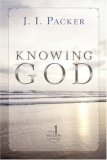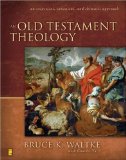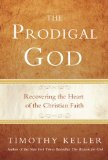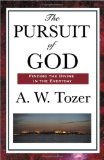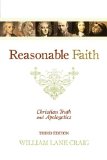I’m not huge on apologetics. It’s not that I find it invaluable or dull; I simply only have so much time in the day. In the midst of all that has to get accomplished in life, some things have to get cut. For me, one of those things is apologetics. Instead, I’ve allowed Brian to pick up the slack for me and do all the heavy lifting while I sit back in my insular world of exegetical debate.
 Nonetheless, I can’t help but be interested in apologetics to some degree, especially since so many of my non-Christians friends and coworkers buy into junk that gets spewed out on a regular basis. For instance, Dan Brown writes a book full of historical inaccuracies and incredible leaps of logic, but people buy into it. It’s simply hard to sit by and listen to people regurgitate his junk without saying something about how wrong it is. That is, on basic level, engaging in apologetics.
Nonetheless, I can’t help but be interested in apologetics to some degree, especially since so many of my non-Christians friends and coworkers buy into junk that gets spewed out on a regular basis. For instance, Dan Brown writes a book full of historical inaccuracies and incredible leaps of logic, but people buy into it. It’s simply hard to sit by and listen to people regurgitate his junk without saying something about how wrong it is. That is, on basic level, engaging in apologetics.
But after watching a video of John Piper interviewing Doug Wilson about his upcoming documentary, Collision, I encountered a slightly different take on public apologetics than I had previously heard. Collision is a documentary of a debate tour Doug Wilson conducted with well-known atheist, Christian Hitchens. Wilson and Hitchens debated on a few university campuses over the topic: Is Christianity good for the world?
Wilson referred Acts 18:27-28 to present a more church-focused view of apologetics than what I had previously thought of. Here is that text:
When Apollos wanted to go to Achaia, the believers encouraged him and wrote to the disciples there to welcome him. When he arrived, he was a great help to those who by grace had believed. For he vigorously refuted the Jews in public debate, proving from the Scriptures that Jesus was the Messiah.
What Wilson points out here is that by engaging in public debate, Apollos encouraged the church. Wilson’s goal is that by answering the objections someone like Hitchens has to Christianity, he is able to encourage those who face those same questions (especially university students). It’s interesting because I’ve never really thought about the pastoral function of apologetics. By answering the critics of Christianity, one can encourage those whose faith has been “dented” (to us Wilson’s word from the interview).
To be sure, Wilson says that he would love for unbelievers to come to faith, as one would expect. But his point about giving Christians confidence that there are answers to the questions that are thrown at them is one that sticks out to me. Maybe for those who are more knowledgeable of apologetics this is old hat. For anyone interested in encouraging other Christians, perhaps taking up the challenge of apologetics is worthwhile, if not necessary.
I’ve included the trailer for the documentary below. I’ve tried to get the video of Piper’s interview with Wilson on here, but I can’t figure out how to do this with wordpress (score a point for blogger) and it isn’t on youtube yet. When it is loaded onto youtube (and I think it will be), I’ll let you know. Until then, you can go here, (video will open, it’s about 15 minutes long).
 Chapter 1 of J I Packer’s
Chapter 1 of J I Packer’s 

